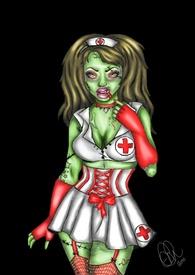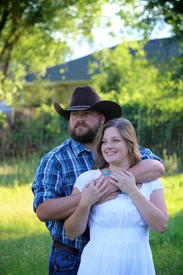Worried: RHR dropped down to 50-52
Workout4Health
Posts: 447 Member
Before I started working out strenuously and consistently my heart rate was like in the 80s. Then it started to go down to about 67 after a couple of months. Then I pushed it even more with my long and hard cardio. It was at 58 and I was starting to worry, and now it's at 50-52. The problem is that I am still going to lose at least 30 more pounds. And I'm going to be getting in much better shape as well. I was just at a 58. If it keeps going down this rapidly and I keep getting in better condition, I'm gonna be in the 40s and then 30s? My other concern about this is that if my heart rate is low that means my metabolism is lower? So does that mean if I was more ''out of shape'' and my heart was beating faster, I'd burn more? Just all seems like a double edged sword. The world record is 28 beats per minute. I'm only 22 away from that? I already dropped about 30 beats. It should only be less than 60 once you've reached your goal. If it's too low, it means less calories are being utilized. Is this why people don't want to get in shape at the gym on the treadmill, because they don't want to become efficient?
0
Replies
-
Generally, a lower heart rate at rest implies more efficient heart function and better cardiovascular fitness. For example, a well-trained athlete might have a normal resting heart rate closer to 40 beats a minute.
from: http://www.mayoclinic.org/healthy-living/fitness/expert-answers/heart-rate/faq-20057979Consult your doctor if your resting heart rate is consistently above 100 beats a minute (tachycardia) or below 60 beats a minute (bradycardia) — especially if you have other signs or symptoms, such as fainting, dizziness or shortness of breath.
If you've been doing cardio as you have lost weight, than you have been improving your cardiovascular fitness. It's normal for your heart rate to go down the more you improve your fitness.
As with anything health related though, if your concerned consult a doctor.0 -
This content has been removed.
-
Well for starters cardiac metabolism is a lot more complicated than that. The rate should have minimal to zero effect on your weight loss.
In terms of your own resting heart rate dropping to that extent, it is concerning. Yes athletes build up cardiovascular fitness to a degree that it will lead to a drop in rate. It is possible that this is what you have done as you are young. If that's the case it will bottom out and you are unlikely to get it much lower. I would be surprised if you have managed to achieve that in a few months so I would advise you to get checked out just to rule out any arrhythmias or electrolyte imbalances.0 -
No, that's not how it works. A lower RHR is a good thing.I understand it's normal. But what I'm asking is is it bad for your metabolism because the harder your heart beats, the more calories it uses.0 -
Lowering your resting heart rate won't decrease you metabolism the way you are thinking. For one thing along with that better cardiovascular condition you are adding more muscle. Muscle is the main driver of metabolism. The more muscle you have the more calories you will burn even when at a resting state. Yes, you will get more efficient but if you are exercising and you have added more muscle then you will have a higher metabolism.0
-
Your HR has nothing to do with your metabolic rate...your HR is not directly correlated to calorie burn. A HRM simply uses your HR in an algorithm in order to estimate what level of theoretical VO2 max you are working at when you perform a steady state cardio event (which is also necessary for your HRM to be even remotely accurate for calorie burn)...there is no direct correlation. If there were, I'd just have someone come in and scare the **** out of me every five minutes and I'd be a lean *kitten* mo-fo without having to do all this work.0
-
Your HR has nothing to do with your metabolic rate...your HR is not directly correlated to calorie burn. A HRM simply uses your HR in an algorithm in order to estimate what level of theoretical VO2 max you are working at when you perform a steady state cardio event (which is also necessary for your HRM to be even remotely accurate for calorie burn)...there is no direct correlation. If there were, I'd just have someone come in and scare the **** out of me every five minutes and I'd be a lean *kitten* mo-fo without having to do all this work.
I'm patenting your idea and will make millions!0 -
If you rent out hot yoga studios for night-time terror sessions, just think of the calorie burns. Orange Theory and Zumba would have nothing on your marketing claims.0
-
You should ask your doctor about this. You don't want advice from the ding-dongs online. You want real, trustable, medical advice.
Ask the doctor. It's probably nothing! But you want to be sure.
Wow you really do only and always suggest going to a doctor.
You need a new routine dude, its getting stale.0 -
You should ask your doctor about this. You don't want advice from the ding-dongs online. You want real, trustable, medical advice.
Ask the doctor. It's probably nothing! But you want to be sure.
People like you are the reason healthcare is so expensive.0 -
If there were, I'd just have someone come in and scare the **** out of me every five minutes and I'd be a lean *kitten* mo-fo without having to do all this work.
Wait what? I've been calling those heart-stopping moments in my life --near misses on the highway, phone calls from the nurse's office at the kids' camp, etc -- "my cardio for the day."0 -
OP, it can be pretty low without being a concern. Back in the olden days, I had low blood pressure and a resting heart rate in the 40's. Medical personnel would always ask me if I'd just woken up. :laugh: I agree that it will bottom out. You said in a previous post you were planning on a doctor's visit? If you haven't already gone, you could ask the doc while you're there. Wouldn't hurt.
 0
0 -
I understand it's normal. But what I'm asking is is it bad for your metabolism because the harder your heart beats, the more calories it uses.
Nope.0 -
You should ask your doctor about this. You don't want advice from the ding-dongs online. You want real, trustable, medical advice.
Ask the doctor. It's probably nothing! But you want to be sure.
So OP should drop a couple hundred bucks (whether the insurance company pays for it or he does) and go be poked and prodded for a while just to confirm that he's not a special snowflake?
K then.0 -
I understand it's normal. But what I'm asking is is it bad for your metabolism because the harder your heart beats, the more calories it uses.
The lower the heart rate is the less the heart works which means you are in good shape for 50 bpm RHR.0 -
Mine is consistantly in the 30s and 40s. Use to be in the 50s and 60s when I was chubby. Healthy as can be. :-)0
-
You are probably gonna die. Just give up.0
-
You should ask your doctor about this. You don't want advice from the ding-dongs online. You want real, trustable, medical advice.
Ask the doctor. It's probably nothing! But you want to be sure.
People like you are the reason healthcare is so expensive.
No. People who don't seek care early in the progress of possible disease, and spurious malpractice claims, are the reason medical costs are so high.
OP--see a doc. It's unlikely to have that kind of cardiac conditioning in so short a time period. It's more likely that your thyroid is out of whack--the most common cause of low-heart-rate-not-associated-with-heart-disease.0 -
You should ask your doctor about this. You don't want advice from the ding-dongs online. You want real, trustable, medical advice.
Ask the doctor. It's probably nothing! But you want to be sure.
Really? OK no point of keeping you in my friend list.0 -
For your peace of mind: I just checked mine sitting at my desk and I got an average of 50. You're cool, OP.
Also:
http://www.webmd.com/heart-disease/features/5-heart-rate-myths-debunked?page=2Myth No. 3: A healthy resting heart rate is between 60 and 100 beats per minute.
True, that's a normal heart rate range for adults. But the upper end of that range may mean a greater chance of serious health problems.
"A number of studies have shown that, even within the normal range, a high resting heart rate is associated with an increased risk for ischemic heart disease, stroke, and sudden cardiac death," Tomaselli says.
Continue reading below...
Norwegian researchers recently reported that for every 10-beat rise in resting heart rate, the risk of dying from a heart attack rose by 18% in women and by 10% in men. And a recent Japanese study showed that a resting heart rate higher than 80 beats per minute was associated with a greater risk of becoming obese or developing heart disease decades later. Diabetes and obesity are both risky for the heart.
Those studies don't prove that a high resting heart rate caused heart attacks, obesity, or diabetes. But the findings held when the researchers considered other risk factors.
So how high is too high for a resting heart rate? There’s no absolute consensus about this, but most doctors agree that resting heart rates consistently in the upper range are not ideal.
"It is hard to set a precise cutoff for this risk factor, but usually a heart rate of 90 or above is considered abnormal and potentially deleterious," Javaid Nauman, a research fellow at the Norwegian University of Science and Technology in Trondheim, Norway, tells WebMD in an email. Nauman headed the Norwegian heart rate study, published online in the Journal of Epidemiology and Public Health on Jan. 11, 2010.
To find your resting heart rate, press the index and middle fingers over the underside of the opposite wrist, just below the thumb. Press down gently until you feel your pulse. Count the beats for one minute, or count for 30 seconds and multiply by two. To ensure an accurate reading, sit quietly for at least 10 minutes before taking your pulse.
Google is your friend.0 -
This content has been removed.
-
This content has been removed.
-
I went for a physical a year ago and mine was in the mid 40's. The NP I was seeing said she wasn't used to seeing such a low number and ordered me to wear a 24 hour halter monitor for testing. At night while in a deep sleep my HR dropped to a low of ~ 36 BPMs. I also went and ran some sprints for fun and it topped out in the upper 170s. This got sent off to the cardiologist who examined the results and told my NP that she simply wasn't used to seeing a healthy athletic heart and that I should just keep doing everything the same. I was 39 y.o. at the time, 5'8 ~185 lbs.
You really should look at this as a good sign that you are becoming more healthy. Now if you feel your heart start skipping beats or any other arrhythmias, get to the doctor ASAP.0 -
You should ask your doctor about this. You don't want advice from the ding-dongs online. You want real, trustable, medical advice.
Ask the doctor. It's probably nothing! But you want to be sure.
You know what you call the dunce that finished last in his class at med school?.....................................Doctor.
OP, It's common for athletes to have resting heart rates in the fifties, and some even in the forties. Weight loss combined with increased cardio will do this, if you have been at it for a few months continuously, then while you may not yet look like an athlete, your cardiovascular system can be every bit as in tune as one.
Rigger0 -
I normally don't weigh in on things like this but I have to on this. Experiencing Bradycardia (lower then normal heart rate) is normal for a health person but can be a symptom of something greater in some. In your case you have worked your butt off. 116 lbs down, working out regularly. I would be more concerned if your RHR didn't go down. If it was something to worry about like your thyroid, you would have other signs/ symptoms. like puffiness in your face, unexplained weight loss (I'm guess like everyone else you have worked hard to lose your weight), fatigue, chest pain, dizziness when standing, confusion or difficulties concentrating, pain and swelling in your joints, ete.
It is more likely a sign that you are body is getting healthy and that your heart isn't working as hard as it was. Take it as a complement your preventing the bad disease by changing your life now.
If your heart rate started dropping like that and you were 65 yrs old and had a sedentary life style totally a different story.0 -
I would be concerned. Someday, eventually, your heart rate is going to drop to zero and then you'll have a real problem. Or no problems at all, depending on how you look at it.0
-
Mine's 35-40. I even have a bracelet ID that says RHR is 40's-50's (need to update it I guess) so that doctors don't freak out. That's why triathletes prefer to go to doctors who are also athletes.0
This discussion has been closed.
Categories
- All Categories
- 1.4M Health, Wellness and Goals
- 398.1K Introduce Yourself
- 44.7K Getting Started
- 261K Health and Weight Loss
- 176.4K Food and Nutrition
- 47.7K Recipes
- 233K Fitness and Exercise
- 462 Sleep, Mindfulness and Overall Wellness
- 6.5K Goal: Maintaining Weight
- 8.7K Goal: Gaining Weight and Body Building
- 153.5K Motivation and Support
- 8.4K Challenges
- 1.4K Debate Club
- 96.5K Chit-Chat
- 2.6K Fun and Games
- 4.8K MyFitnessPal Information
- 12 News and Announcements
- 21 MyFitnessPal Academy
- 1.5K Feature Suggestions and Ideas
- 3.2K MyFitnessPal Tech Support Questions



















